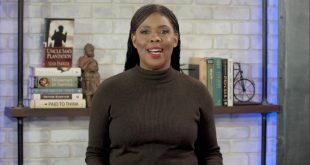 As the 2012 elections came to bear, many black pastors were in a conundrum: they were grateful a black man had the opportunity to lead the nation while disagreeing with his stands on many issues. I was very outspoken about policies that President Obama had forged that ate at America’s moral compass.
As the 2012 elections came to bear, many black pastors were in a conundrum: they were grateful a black man had the opportunity to lead the nation while disagreeing with his stands on many issues. I was very outspoken about policies that President Obama had forged that ate at America’s moral compass.
Conservative whites are often puzzled by the nearly unconditional loyalty to President Obama in most of the black community. After all, they point out, under his administration that black Americans have fared worse by almost every measure, whether it is employment (down more than 4%), home ownership (down 7%), or median income (down more than 11%). Even PBS’s Tavis Smiley admitted, “The data is going to indicate sadly that when the Obama administration is over, black people will have lost ground in every single leading economic indicator category.”
But the simplest explanation for President Obama’s persistent popularity among blacks is that they identify with him. And now, after five years in office, the President has spearheaded Brother’s Keeper, an initiative for at-risk American young men of color—young men whose childhood is not unlike his own. According to the White House website, a task force has been established “to help determine which public and private efforts [to help these young men] are working, how the Federal government can support those efforts, and how we can get more folks involved in those efforts across the board.”
Of course one factor nearly all of these young men share is an absentee father, and I have always appreciated the fact that the President does not shy away from talking about how this contributes to problem behavior. Speaking about Brother’s Keeper, he recalled his own experiences growing up:
I didn’t have a dad in the house. And I was angry about it, even though I didn’t necessarily realize it at the time. I made bad choices. I got high without always thinking about the harm that it could do. I didn’t always take school as seriously as I should have. I made excuses. Sometimes I sold myself short.
Interestingly, the President’s persistent affirmation of the importance of fatherhood—if more in rhetoric than in policy—has earned him some critics on the left. Following his address in Chicago after the 2013 murder of Hadiya Pendleton (the teenager who had sung at his second inauguration just days before), Dr. Brittney Cooper wrote in Ebony Magazine, “When the president began by suggesting that we need to ‘do more to promote marriage and encourage fatherhood,’ I started shaking my head. Rather than empathizing with those black families that have been destroyed by violence, he blamed the prevalence of non-nuclear black families for contributing to it!”
Other intellectuals and journalists have made similar criticisms of President Obama, accusing him of insulting single mothers and “blaming the victim.” And of course they do the same to anyone who points out the reams of social science research which has established beyond doubt that children who live with married biological parents fare better in every area of life than children in single-parent homes.
Why is it so outrageous to suggest that failing to marry before having children—something Americans of all races are doing with greater frequency than ever before—is immoral, and that such immorality hurts children? Because a growing crowd of anti-family activists refuse to accept that there are any negative consequences for their choices. Anyone who points out evidence to the contrary is accused of shaming single mothers.
The problem with such accusations is that they make it nearly impossible to pressure absentee fathers to spend more time with their children. Yet more involvement benefits not only the children but also the men themselves. When a Virginia jail held a father-daughter dance last year, both the men and their daughters shed tears of joy. The daughters left with meaningful memories, and the fathers resolved to make better decisions in the future.
Reflecting on how he was able to overcome the odds, President Obama explained:
I had people who encouraged me — not just my mom and grandparents, but wonderful teachers and community leaders — and they’d push me to work hard and study hard and make the most of myself. And if I didn’t listen they said it again.
In other words, the President had responsible, loving adults in his family and community who took an active interest in his success and held him accountable. As I have pointed out many times, this is precisely why at-risk black youth who attend church regularly fare so much better than those who do not. Well-intentioned government run organizations like Head Start simply do not have the same track record of success.
I truly hope the President’s initiative succeeds. I hope that the task force honestly investigates how to best help the millions of young men who are struggling, and devises policy recommendations that will encourage better outcomes. And in the process, I hope the President can help his critics come to terms with the fact that there is no substitute for a father in the life of his child.
 Bishop Harry Jackson is chairman of the High Impact Leadership Coalition and senior pastor of Hope Christian Church in Beltsville, MD.
Bishop Harry Jackson is chairman of the High Impact Leadership Coalition and senior pastor of Hope Christian Church in Beltsville, MD.
Photo credit: The White House (Flickr Commons)
 CURE News and Clergy Blog News and Commentary for Christians
CURE News and Clergy Blog News and Commentary for Christians



